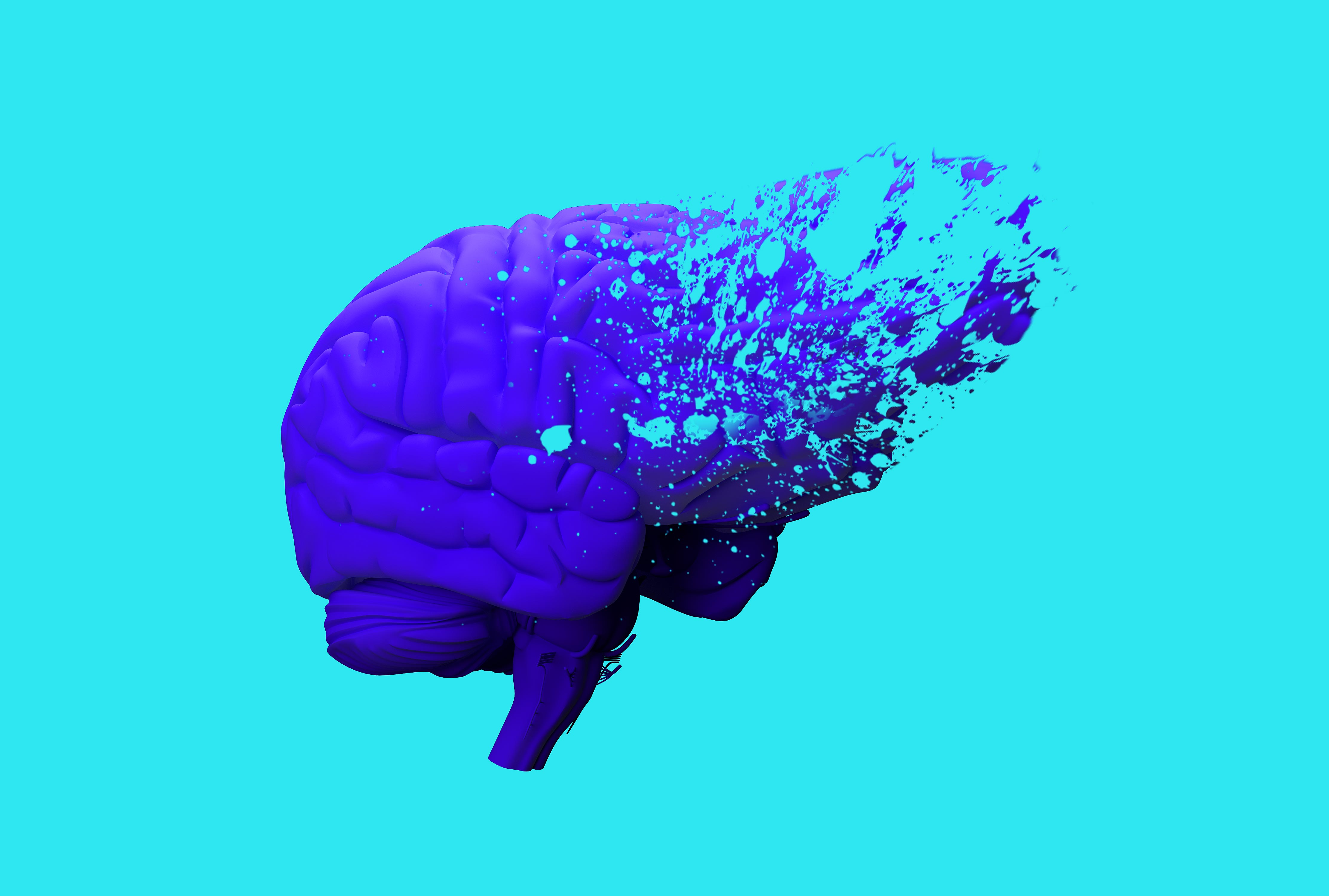Don't Forget to Improve Your Memory

On Christmas Eve, my mother was beside herself. She'd forgotten the bourbon vanilla ice cream she wanted to put on the apple pie she'd brought for dessert. She had a verbal debate with herself over whether or not she should drive back home to get it, and it took several people telling her "It's just ice cream" before she accepted it wasn't as big a deal as she was making it out to be.
It's easy to understand her panic, though. Forgetfulness is incredibly frustrating, both for the person who has forgotten and for the people around them. In cases like Alzheimer's, it can be heartbreaking.
Frequent forgetfulness leads many to believe they simply have a "bad memory," a self-diagnosis that can lead to feelings of shame, especially in those with conditions such as ADHD.
What makes a person forgetful
The issue is, when we talk about "memory loss," we're using an extremely broad umbrella to speak about a series of individually complex situations that may or may not be similar or related.
"Memory is a tricky thing, and a 'bad memory' can mean a lot of things," said Amy Marschall, a psychologist with Resiliency Mental Health. "For some people, it's forgetting appointments or forgetting to write down appointments, and for others, it's things like, 'Where did I put my keys?' or 'Why did I come into this room?'"
As for what actually causes memory loss, it's a complex question with a long list of answers.
Erin Donnelly, a clinical psychologist and reproductive sexologist, distinguished some of the more widespread causes of non-chronic memory loss: trouble sleeping at night, being overstressed, having too much distraction in your life, poor nutrition and dehydration, exhaustion, depression, heightened anxiety and alcohol or substance use.
"All of these have a detrimental impact on memory—especially our short-term and working memory capabilities," she explained.
Techniques for improving your memory
Both Marschall and Donnelly cited one of the most common occurrences of a "bad memory" that everyone reading this now has likely experienced at some point: Where did I put my keys?
"So many people will go out and buy a hook and then never put their keys on it," Marschall said. (She is not a fan of key hooks herself.) "Notice where your brain naturally wants to put them, and then designate that the 'Key Spot.' My keys go in the middle of my table because I kept throwing them on the table and not being able to find them….If your brain does things a certain way, lean into it."
Additionally, Donnelly encourages verbalizing actions as we do them. For example, if you say to yourself, "My keys are on the table," you're less likely to forget that they are on the table.
"Narrating your actions out loud to yourself helps encode the information through both motion and verbal phrasing, thereby increasing the likelihood of remembering information," Donnelly said.
Of course, keys aren't the only things we forget, and we can't just go around narrating our lives out loud as if we're both author and protagonist without garnering a few questioning looks. In many cases, remembering something can be as simple as writing it down in a list, though Donnelly was quick to caution that single-line lists are more helpful than compound lists or trying to multitask.
'Narrating your actions out loud to yourself helps encode the information through both motion and verbal phrasing, thereby increasing the likelihood of remembering information.'
"There is a significant body of literature that demonstrates we are actually not able to multitask," she noted. "Rather, we attention-switch between various things during a set period of time. The more people can focus on one task at a time, the increased likelihood they will be able to remember what they set out to do, rather than starting a bunch of different projects at the same time."
As a practical application, she also encourages setting a rule: If a task takes less than two minutes, do it right away, but if it's going to take longer, write it down. Keep all of your to-dos in one place. Having written tasks scattered about in a dozen different areas isn't any better than trying to keep all that information in your brain.
"Think of it this way: We each only have so much 'bandwidth' any given day, and if there are a ton of different processes running simultaneously, there is not much left for our memory center," Donnelly explained. "As much as we can 'close out tabs,' we free up bandwidth, which is extremely important for memory."
Focusing on one thing at a time helps to ensure our "mental bandwidth" isn't being overloaded, something that could eventually lead to a crash. With that in mind, it isn't very helpful for us to do only one thing.
"If you just do Sudoku, long-term research shows you only get better at that one task instead of improving your brain, Marschall said. "So having several [engaging activities]—novelties, so to speak—to choose from is important."
It really is okay to forget things from time to time
Shame often accompanies forgetfulness, especially when the thing we've forgotten is important—a partner's birthday, a colleague's name or a deadline, to name a few—but it's strange we feel so much shame for something so common. Of course, forgetfulness can be a reason for concern when it becomes frequent to the point of being chronic, in which case consulting a doctor becomes very necessary.
For ordinary, everyday forgetfulness, we shouldn't feel shame.
"It's not a personal moral failing to forget things, even if you forget things a lot," Marschall said. "Refocusing on what you can do differently—what supports your need to remember things—can help you do better in the future."
Life is a series of successes and failures, encountering shortcomings and overcoming them. Perfection is a myth. People screw up. People forget. What matters more is not that we have forgotten, but that we try harder and take the necessary steps to remember the next time around.
"We all have a different constellation of strengths and areas in which we struggle in our ability to perceive, interact with and learn about the world," Donnelly said. "Being able to remember and harness those strengths is the key."


















